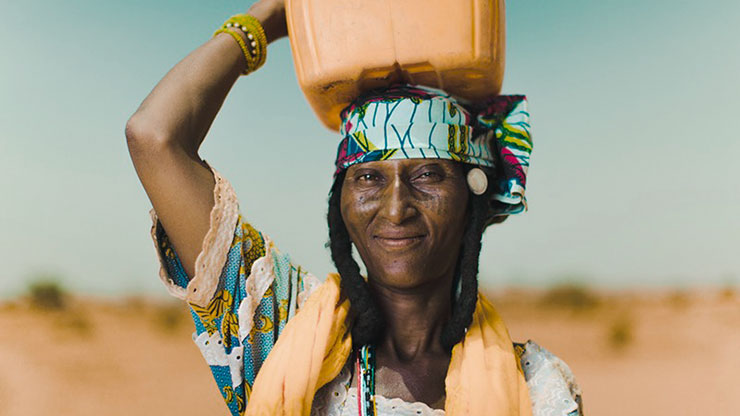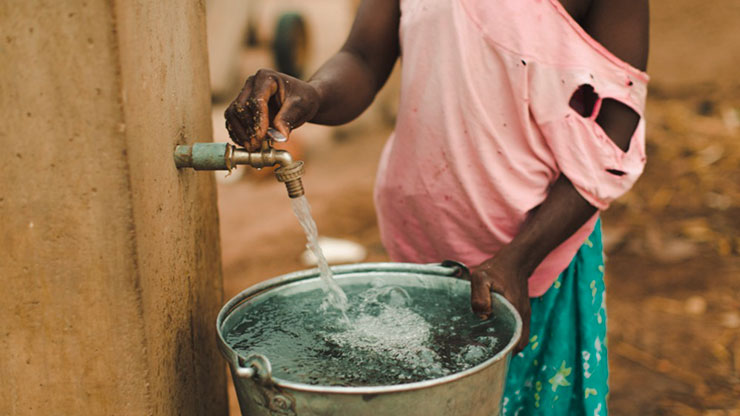Women In Agriculture


Saint Bernard of Clairvaux is credited with first noting that “[t]he road to hell is paved with good intentions.” (circa 1150) Charitable programs in Africa often embody this maxim – well-intentioned but ultimately doomed due to lack of understanding of economic, cultural, or other obstacles. WISE is fortunate to have at its Zambian Project Coordinator Maggie Wamunyima, who ensures that our programs work within the cultural and economic conditions of the Western Province of Zambia. She recently authored the following article discussing the significance of women in farming in rural Zambia.
INDISPENSABLE: THE ROLE OF WOMEN IN AGRICULTURE IN RURAL ZAMBIA
A major and until recently often overlooked feature of agrarian systems in the developing world, particularly in Africa and Asia is the crucial role played by women in agricultural production. In Zambia, where subsistence farming is predominant and shifting cultivation remains important, nearly all tasks associated with subsistence food production are performed by women. Although men who remain home generally perform the initial task of cutting trees and bushes on a potentially cultivable plot of land, women are typically responsible for all subsequent works, including removing and burning felled trees sowing/ planting on the prepared land, weeding harvesting and preparing crop for the storage or immediate consumption.
Many researches on women and development in Africa reveal that women do most agriculture work (70%) participation in agriculture. Typically, these activities are performed only with primitive tools and require many days of long, hard labor simply to produce enough output to meet the family’s need subsistence needs, while the men often attempt to generate cash income through work on nearby plantations or in the cities. Recent report confirms women’s time poverty predicament.
Women do much of the labor for cash crop production, cultivate food for household consumption, raise the market livestock, generate additional income through cottage industries, collect firewood and water and water and perform household chores, including the processing and cooking of food. Due to their time consuming nature of their diverse responsibilities and no doubt to their limited household bargaining power women tend to work longer hours than their male counterpart. studies concerning the allocation of women’s time among different activities have greatly increased recognition of the importance of rural women’s economic contribution. It is clear women produce a large share of agriculture output and supply a large share of the labor. Successful agricultural reform will require raising women’s productivity and ensuring that gender specific policies are at the core of rural development strategy.
Women make an important contribution to the agricultural economy through the labor they supply in the cultivation of cash crop but as Women activist we would like to see women empowered with agricultural inputs to fully benefit from agriculture products not where the profits from cash commercial crops are generally controlled by men when the strenuous job of weeding and planting are done by women. In addition to commercial cash crops, women frequently cultivate small vegetable gardens at backyards to provide food for family consumption. Despite the cash value of produce from these gardens may be small, it often represents an important component of the total resources available to women and this shows that the most important role of women is providing food security for the household.
When women’s income increases and become stable all household welfare will be improved in terms of nutrition and health, the evidence is clear that in most contexts, a larger fraction of income provided and controlled by the wife tends to be used for children’s health and education than that of their husbands. Government sponsored programs continue to exclude women often because women lack collateral for loans meant to develop both their household and a nation at large, agricultural inputs and training are rarely provided to women applicants.
Studies have found out that sustainable projects are most likely achievable when resources are directly placed under their control, therefore adoptions of new crops and technologies and discarding ancient ways of farming will be more effective where patterns of productions are consistent with the interest of female household members because the active participation of women is critical to agricultural prosperity, policy design should ensure that women benefit equally from development efforts.
Hunger and starvation makes a woman vulnerable such that she may fall for anything but empowered woman makes informed decision and plans for her future.
WHY THEN MUST A RURAL WOMAN BE EMPOWERED IN AGRICULTURE?
- They provide food basket to their family and this reduces malnutrition.
- They are able to take their children to school and encourage their girls to finish school and this reduces teenage pregnancies and early marriages.
- They can contribute to the national Gross Domestic Product.
- They will be having healthy pregnancies and be able to plan for child spacing.


WISE Zambia is a United States 501(c)(3) nonprofit organization, Federal Tax ID# 41-2141986. WISE Zambia is a registered Zambia non-governmental organization, Tax No. 1019286370
© Copyright 2023 Sishima Graphic Design (Zambia)


